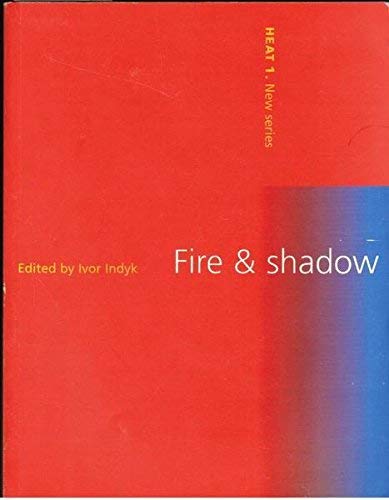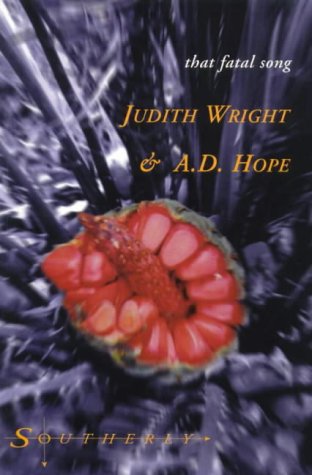- Free Article: No
- Contents Category: Journals
- Custom Article Title: Aviva Tuffield reviews four literary journals
- Review Article: Yes
- Article Title: Four Journals
- Online Only: No
- Custom Highlight Text:
I would now like to begin with a plea for small literary magazines. I now have a vested interest in their survival (well, one, in particular), but then, I always thought I did. Little magazines are essential to the vitality of Australian literary and political culture. They play an important role in nurturing new poets, critics, storytellers, and reviewers. In the current book-publishing climate, there are few other opportunities for publishing short stories, experimental fiction, or poetry. Small magazines instigate and foster cultural debate and present a diverse range of opinions. Many of the most important issues in Australian public life today were first raised and discussed in literary magazines, including the stolen generations and racial ‘genocide’, the perils of economic rationalism and globalisation, the politics of One Nation, and the implications of new media technologies.
Literary magazines are responsive to current reading tastes. Many commentators have noted, especially when lamenting the demise of the Australian Review of Books (ARB), the popularity of the ‘essay’, as proved by the success of Black Inc.’s collections of Best Australian Essays and their new venture, Quarterly Essay. Little magazines are perfectly suited to the essay form, being able to provide more space for an extended discussion of an issue than is available in the broadsheet newspapers. The other way in which literary magazines are in tune with our postmodern age is that they can be read in a non-linear way, dipped into, with short prose and poems for those small windows in our busy schedules. They are interactive to the extent that the reader is invited to find and make thematic links across the pieces. To use a term now associated more with digital media, they can be ‘browsed’, while still retaining all the advantages of the printed form; they are portable, their battery never runs flat, and they have that irresistible tactility of well-produced, bound text.
Despite their suitability and importance to Australian culture, literary magazines struggle, as is evident from the Victorian Writers’ Centre’s ‘Erratum’ slip that accompanies their ‘Handbook for Writers’, listing those small magazines no longer with us. If the Murdoch-backed ARB cannot survive, what hope is there for the little guys? Well, looking at the current crop of magazines, there is much to be optimistic about.
Meanjin, now in its sixty-first year appears financially secure. It has been in the news, recently, for the non-renewal of Stephanie Holt’s contract as editor, an event that makes the title of the current issue, ‘Under Construction’, particularly apt. This issue is built around writings about ‘the city’, in abstract, and particular cities, in concrete. It took me a while to warm to this theme, until I recognised its human dimension and saw other cityscapes emerging with reference to place and identity, exile and homecoming, indigeneity and migration.
The autobiographical impulse is evident in much of the writing. Stand-out pieces for me were the account by Abbas El-Zein, a Lebanese immigrant, of his arrival in Sydney and of his experience of ‘migration as mutilation’; Christopher Deere on the impossibility of returning to the city of one’s childhood, despite his physical return to Melbourne after many years; and a witty piece of nostalgia by John Harms on the now-departed ‘Hill’ at the Gabba, part of an ‘architecture and literature’ colloquium on the redevelopment of certain Brisbane sites.
Too much space is given to a conversation between Antoni Jach and Andrew Brown-May about Melbourne. Without an interview format, this becomes an aimless ramble. There is, however, a delightful interview with Les Murray by John Kinsella. Murray is characteristically outspoken. It’s worth reading for his opinions on small literary magazines alone and his call for a ‘low horse’ magazine, ‘with no reviews, no critical articles, only things designed for pleasure’. The second part of this interview will be published in the next Meanjin – reason enough to be excited about that issue. If Ian Britain, who takes over as editor later in the year, can maintain this quality, it will be high praise indeed.
 HEAT: Fire & Shadow edited by Ivor Indyk, New Series: 1, 2001, Giramondo Publishing $23.95pb, 256pp
HEAT: Fire & Shadow edited by Ivor Indyk, New Series: 1, 2001, Giramondo Publishing $23.95pb, 256pp
While one little magazine is about to acquire a new editor, HEAT has come back from the brink with a ‘New Series’. Its editor, Ivor Indyk, who began the journal in 1996, has relaunched the magazine with the backing of the University of Newcastle. Its immediate future seems secure. ‘Fire & Shadow’, an impressive first issue, contains a number of literary heavy-weights, including David Malouf, Louis Nowra, and Robert Gray – confirmation, yet again, of the importance of small magazines to established writers. For me, the autobiographical reflections were the most compelling, with a typically revealing piece by Louis Nowra on his love of chihuahuas, which, like his memoir, invites intimacy but not empathy; a self-analysis by Suneeta Peres da Costa, ‘Dreamless’, on leaving Australia for New York, laced with literary references, and questioning whether one can write without a home and devoid of dreams; and an exquisitely crafted meditation by Kerryn Goldsworthy on her relationship with the Yorke Peninsula, ‘Almost an Island’.
My only slight gripe with HEAT is in terms of its copy-editing. There are too many typos, a dearth of punctuation, and no consistent house style. With contributions of this calibre, readers’ enjoyment of the magazine should not be interrupted by such matters.
Overland is another magazine undergoing a transformation of sorts. Founded in 1954, Overland’s unswerving commitment to stimulating political debate, awareness, and activism on the left has now extended to a series of lectures on provocative and important topics, which are subsequently published in the magazine. Overland 162 contains Stuart Macintyre’s inaugural ‘Overland lecture’, a lucid and engaging summary of the history of the Australian Labor Party. He suggests there is much to be proud of in Labor’s history, even when its political leaders have disappointed. Borrowing from Joseph Furphy, Macintyre calls for the revival of a ‘democratic temper’ and of the experiments in social democracy that were ‘offensively Australian’.
Overland’s next issue will contain a 12,000-word essay ‘discrediting erroneous claims by Quadrant about the massacres of Australian Aborigines’ and advocating the use of the term ‘Indigenocide’ in the Australian context. Having glimpsed proofs of Overland 163, entitled ‘The Massacre of Australian History’, I eagerly await this issue.
 Southerly: Judith Wright & A.D. Hope edited by David Brooks, Vol. 61: 1, 2001, Halstead Press $21.95pb, 231pp
Southerly: Judith Wright & A.D. Hope edited by David Brooks, Vol. 61: 1, 2001, Halstead Press $21.95pb, 231pp
Another veteran in the literary magazine market, established in 1939, is Southerly. Its first issue of 2001 pays tribute to two of its original contributors, Judith Wright and A.D. Hope, both of whom died last year. The material compiled for this commemorative purpose is impressive. It includes, in the ‘Documents’ section, a revealing correspondence between A.D. Hope and Vincent Buckley, and a pair of delicious faxes from Wright to Tom Thompson; a moving reminiscence by Barbara Blackman outlining ‘the topography of a friendship’, which is as much a paean to Jack McKinney as to Judith; and a fascinating selection of photos of both poets, many taken from personal collections. Southerly seems a little staid and has the most academic feel of all those reviewed here, but as the literary journal of the English Association, that is to be expected. A compensatory by-product of this scholarliness is its generally longer and better-contextualised book reviews.
As many have pointed out in discussing the loss of the ARB, literary magazines are often lucky to reach sales in four figures. However, sales do not reflect their influence nor even their readership. Many go to public and institutional libraries where the readership per copy is multiplied greatly. Without little magazines there would be few, if any, outlets for aspiring writers. As Miles Franklin contended over fifty years ago, ‘without an indigenous literature people can remain alien in their own soil’. These small native publications allow Australians to express, negotiate, and debate new political, cultural, and literary ideas; to better understand the times in which we live; and, thus, to re-imagine our society in order to change it. To adapt a catchphrase aimed at public services: ‘Support them or lose them.’


Comments powered by CComment